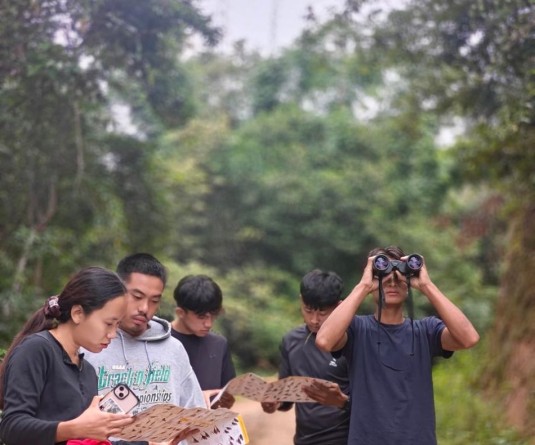
Dr Atola Longkumer
Bengaluru
Covid-19 and the disruptions it has brought should make us reflect and rethink of the living we did before the global pandemic hit us. Life as we knew until a few months ago seems like another time, another era. The lockdown and the necessary measures to protect life have made us confront the fragility of life and the futility of all its seeming necessities. We busied ourselves to hoard more, to keep apace with trends, to consume without care, and enjoy comforts without toiling and without counting the costs. This was another time.
The stranded migrants and their fear of survival in unconnected communities, the greedy hoardings by the capable, fearing scarcity, the weltering of vegetables, the wasting of fruitson their trees, and the threat of homelessness as rent went unpaid, are existential realities confronted as Covid-19 made its way through the cities. The Anthropocene human face limits.
Basic needs for bare minimum survival took the priority. The lifestyle of consumption and accumulation taken for granted has been shaken. Food, housing, consumption, movement, availability, and supply of basic needs became uncertain. If there was aid, it was controlled and rationed. Consumption habits have to change. Attitudes to life and worthwhile values require recalibrating.
The challenges encountered by migrants and labourers stranded in the cities, jobless and staring at starvation, receiving basic essential packages organised by charities direct one’s thoughts to home and the land left untilled, the house left empty or just elders and the children. At least in some villages, the reality of villages empty of young people has been a concern for some time, as young people left for the glamour of the cities.
The discrimination by caste practice that pushed the poor landless into the cities as migrant labourers is another context in the mainland, requiring critical analyses and solidarity of resistance with the victims of caste discrimination in the mainland.
As Nagas, Indigenous people, defined by our relationship and ownership of land from time before recorded history, the reorientation to living post-COVID 19 will do good to renew our relationship with the land.
From what we heard from our grandparents, and what some of us saw in practice, before the rapid market forces of globalization took hold of our life, the land provided the basic sustenance for all those who toil. For the lazy and the slothful, our grandparents had edifying stories to tell.
Despite moving away from the ways of the ancestors, a generation ago, most parents tilled the land. Sufficient to supplement the salary and the wages, the fields and gardens provided the annual need of nourishment. There were hardly beggars and obesity was not a health concern.
Salaried but still many parents were weekend farmers. From this our time, it sounds more a romanticisation of a bucolic life. Indeed, for many Nagas who came of age in the late ’80s (yes, the time of Wham!, Duran Duranetc), will remember living with chickens, pigs, dogs and with wooden house floors, and water scarcity in winters. And of course, like Teyve, in Fiddler on the Roof, exclaimed, “we don’t eat like kings, but we don’t starve either” and of course, chicken was not an everyday affordable meal, but not as bad, as Teyvewryly humored “when a poor man eats a chicken, one of them is sick”. We still had sufficient protein from the animals reared at one’s own house, from the peels and pales of the kitchen. Ironically, today, the poor can afford chicken, while the rich afford fresh vegetables.
The privileged live such lives today (only more ordered and sanitized) while the poor and the discriminated and the exploited ones are crammed in rented rooms, working close to 12 hours a day, and hardly having sufficient to visit hometown without incurring debts for another year of laboring.
Surely, it is not an overnight change that has overtaken the Indigenous Naga people, the making has been long, with victimization, misguidance and foolishness of myopic and self-serving agenda of the few. And certainly, it would not be overnight remedy that life will return to ideal.
But, if the disruptions of COVID-19 made us reflect and reorient towards a different lifestyle with reordered priorities, what would it be for Nagas? Will it be a return to appreciate the land of our ancestors?
Long before COVID-19 came upon us, the privileged have begun to turn to the land – perhaps for pleasure or for some quality of home-grown food. The culture of allotment gardening in cities such as London, New York, Berlin makes us wonder how we forgot our land.
Any reorientation of life post-COVID-19 has to include a fresh understanding and relationship with the material world and habits of consumption. Greed and the insatiable desire to possess are demons that need to be confronted and overcome.
If sustenance is our lifestyle, remembering to till the land should bring victuals sufficient from one season to the next. And this is a good beginning towards a better and flourishing future of Nagas as Indigenous people.




